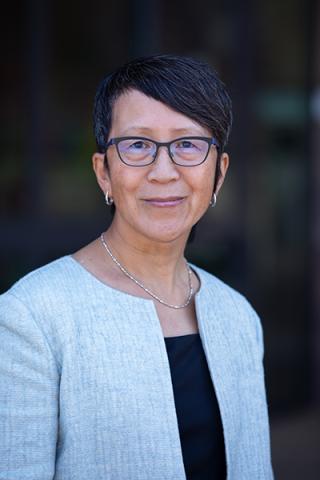
Building PAU’s Social Work Program to Address California’s Workforce Shortage
Meet Professor Rose Wong
Professor Rose Wong, PhD, is a multilingual and multi-faceted academic. Drawing on her knowledge and experience in international development, psychology, and social welfare, Dr. Wong has worked as an international development consultant in Brazil and Portugal and as a social worker developing services that address the behavioral health needs of immigrants and underserved populations.
Now Dr. Wong has joined the faculty at Palo Alto University (PAU) to help establish a culturally-informed Master of Social Work (MSW) program, one that addresses California’s significant behavioral health workforce shortage, specifically in the state’s Central Valley, Central Coast, and greater Bay Area region.
“I took an interest in psychology when I was very young,” said Dr. Wong. “My family immigrated from Hong Kong to the East Bay when I was five. We lived with my grandparents and my grandmother had very severe depression. Later, my oldest brother was diagnosed with bipolar disorder and schizophrenia.” But it would be nearly a decade after graduating from the University of California-Berkeley with a bachelor’s in business and from Princeton University with a master’s in public and international affairs that Dr. Wong would finally pursue a degree in psychology and ultimately social work.
While taking a hiatus from her international development work to train as a long-distance triathlete in Toulouse, France, Dr. Wong needed a visa to remain in France. She enrolled in a master’s program at the University of Toulouse. She served as a research assistant in psychologist Fred Strayer’s social development laboratory focusing on children with autism. With a psychology degree in hand, Dr. Wong returned to California to earn master’s and PhD degrees in social welfare at UC Berkeley.

Dr. Wong considered becoming a school psychologist or researcher with a focus on mental health and Asian American immigrants. But, once again, her career took an unexpected turn when a School of Education professor advised her to switch her graduate application from school psychology to social work because the School of Social Welfare had two professors whose research focus aligned with her interests. The change from psychology to social work allowed Dr. Wong, after obtaining her MSW, to work with children and parents who had been in long-term domestic violence situations at San Francisco’s Donaldina Cameron House. She also completed a two-year, post-doctoral program at the University of California-San Francisco in the clinical services research training program.
Upon entering social work education, Dr. Wong became acutely aware of California’s substantial behavioral health workforce shortage. “They can’t fill the positions in the publicly funded community-based organizations that provide the services,” she said. “There are not enough social work graduates in the state or nation.
Since then, Dr. Wong has become involved in solving this problem and has made important contributions to social work education. From 2019-2021 she established the MSW program at the University of the Pacific as its founding director. She authored a textbook for clinical and research courses on evidence-based practice decision-making. Then, in 2022, she approached PAU about conducting a market analysis assessing the demand for MSW programs in northern California and the U.S. “The timing was right,” she said, as the development of an MSW program was something both President Maureen O’Connor and Provost Erika Cameron had been considering.
Dr. Wong completed the market analysis in 2022 and soon after learned that the California Department of Health Care Access and Information was awarding grants for the development of new social work programs, especially programs aiming to train students to serve children and youth. She worked with PAU to write the grant, and last spring the university was awarded $1.5 million to support the establishment and accreditation of a MSW program. Last June, Dr. Wong joined the PAU faculty as a full professor and is now working to create a unique MSW program with an emphasis on preparing students to work with different ethnic and vulnerable populations in California.
“We are working to develop a very innovative curriculum and gaining the necessary approvals,” said Dr. Wong. “We have a very supportive faculty advisory committee and a community advisory council composed of high-level professionals and leaders who are very knowledgeable about behavioral health practice in the public system,” she said.
While there are many steps to getting a new program approved, including reviews by the PAU’s Board of Trustees, the Western Association for Schools and Colleges and the Council on Social Work Education, Dr. Wong is hopeful to have enrollment begin in 2025.
